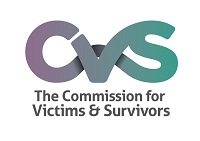×
Standards and Criteria – Support

Standard: SUPPORT
Victims are helped to decide what support would be most helpful to them
- Victims are encouraged to express their own preferences about what would be most helpful to meet their needs, and to establish their own priorities
- When unsure about what course of action to take, victims are assisted to explore the pros and cons for themselves and have their choices respected. e.g. when deciding whether to report the crime to the police
- Victims are helped to identify what they feel able to manage themselves and what might be helpful for the practitioner to assist with
- Service records and audit interviews indicate that support provided differs and is not the same for each victim
Victims are provided with appropriate and effective support that meets their needs
- Victims are assisted to make sense of their experience by the use of active listening skills and sensitive questioning, and have their feelings validated
- Practitioners provide reassurance to victims that although their feelings and reactions are unique to them, they are normal responses to the experience of crime
- Relevant information is provided where needed, in particular information about criminal justice processes
- Support activity records / audit interviews indicate that the support provided is appropriate to meet the emotional, practical and information needs of the victim. (Note: negative indicators include a theme of one-off support contacts where it would be expected that support to meet their needs would last longer).
- Practitioners clearly agree with the victim the steps that they and the victim will take, and when this will be followed up.
- Practitioners periodically review with the victim their progress in managing their experience of crime and the effectiveness of the support being provided, and adapt where needed
- A system is in place to effectively track the progress and outcomes of support to victims and this is used by managers to monitor case work, and action is taken where there might be concerns
- An outcome focused measure of assessing the effectiveness of the services provided is used and information from this used to improve the service if needed
Victims receive the support they need through effective multi- agency work and referrals / signposting where appropriate
- Victims are informed about any needs that can’t be met by the service and where appropriate referred or signposted to other agencies according to their preferences
- There is evidence of appropriate referrals and effective multi-agency working taking place, and practitioners are aware of the options available to victims
- Follow up occurs to check referral or signposting has been successful/useful in meeting their needs
Victims are prepared for support coming to an end
- Plans to end support / close a case should be explained sensitively and clearly to the victim in advance of any action taken, with an opportunity for them to express their views
- Exit strategies exist and should include connecting people with future support networks / contacts including how to re-engage with the service in the future should this be appropriate
- Managers monitor cases to ensure exit is managed appropriately and they challenge areas of concern with supporters e.g. if they identify dependency development, themes of cases being closed too quickly etc










